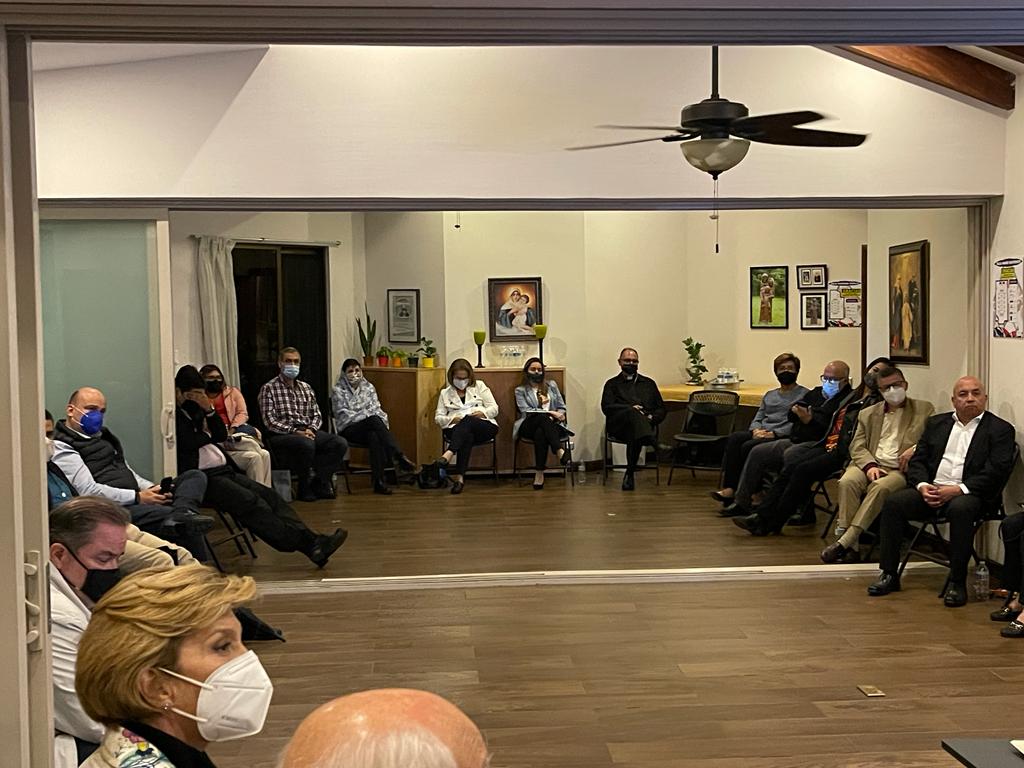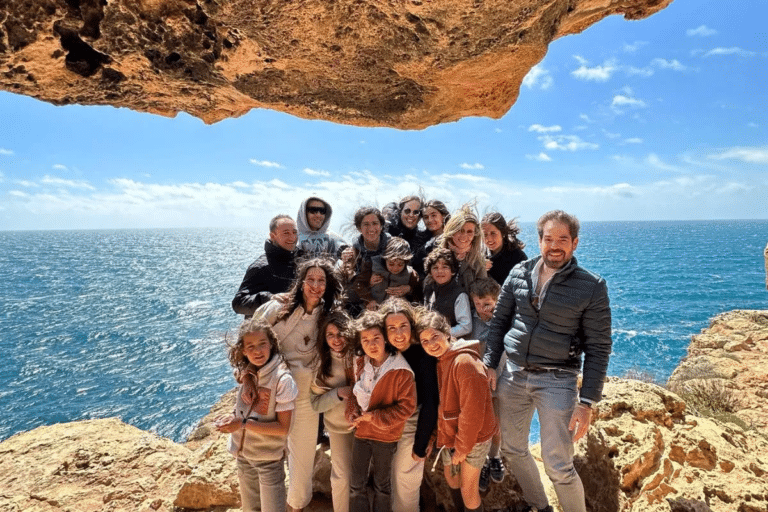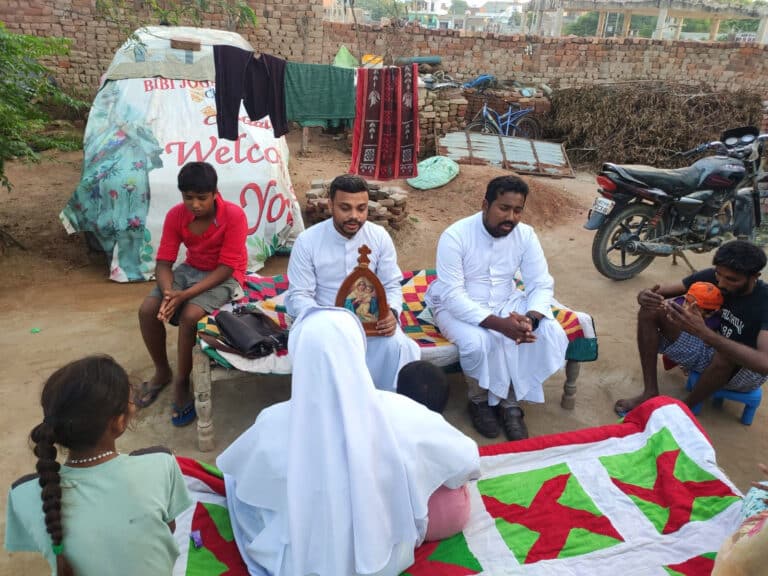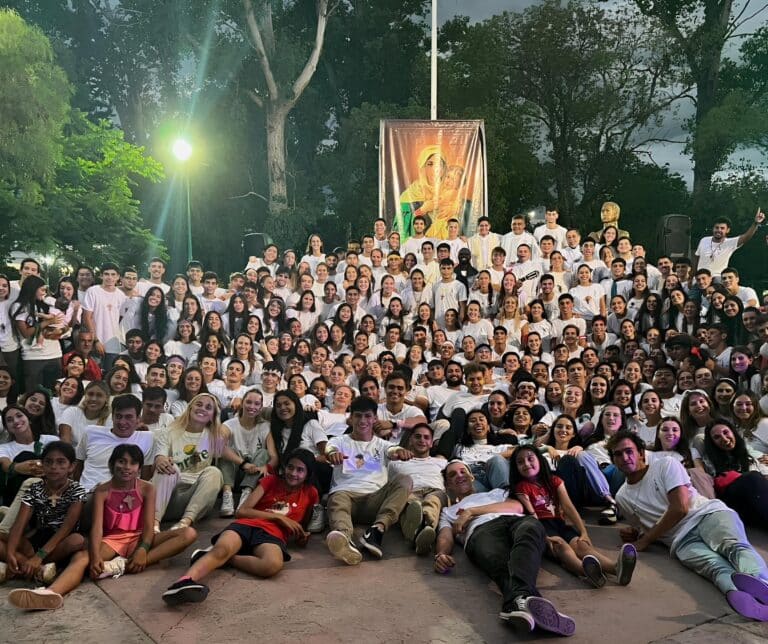The Schoenstatt Movement in San José, Costa Rica, has given life to the formation of a group of lay people, committed Catholics who feel the vocation for public service and who feel the call to serve from their public positions, within the political scheme.
Being in politics is a lonely and hard endeavor
Having occupied leadership positions as deputy and minister twice in my life, I have experienced loneliness, the lack of having someone to turn to and someone to ask about certain issues of faith. This initiative promoted by Father José Luis Correa, advisor of the Movement in Costa Rica, was the answer to the need that we Catholics involved in politics experience: to receive words of encouragement for those of us who are on the battlefield, because the job is tough, committed, and highly exhausting and lonely.
My mission was not to return to politics but to accompany other politicians.
After holding the above-mentioned positions, and with extended deliberations with the Holy Spirit, I understood that my call was not to return to party politics, but rather to use my acquired experience and knowledge to prepare those who would replace me, to give them assistance so that they would not feel alone, but instead feel part of a community in which other lay people who had experienced similar situations would participate and would be supporting them.
My Schoenstatt principles reminded me of one of the lessons learned from our Founding Father, Father Joseph Kentenich, which is to develop deep connections through the creation of communities, inspired by God’s guidance to glorify that life mission that has been entrusted to us.
Virtual meetings with Church personalities

The pandemic has forced us to keep in touch through technological means such as WhatsApp and that is where the group began to develop its own personality and enthusiasm.
Every two or three months we have been able to meet virtually for times of reflection with a guest that the Holy Spirit has providentially sent us. They have given us light and inspiration for the work of those who are or will have in their hands the future of Costa Rica.
We have had the blessing of listening to Monsignor José Manuel Garita, president of the Episcopal Conference of Costa Rica; Monsignor Vittorino Gerardi, bishop emeritus of Tilarán-Liberia; Monsignor Javier del Río Alba, metropolitan archbishop of Arequipa, Peru, and more recently,on November 2nd, we had the blessing of meeting Monsignor Ángel San Casimiro, bishop emeritus of Alajuela.
All the interventions have been extraordinary, all have reminded us of the laity’s obligation to participate in the spaces naturally provided to serve, especially the most needy, as is the case of any political position. For this reason, I will stop briefly to highlight some of Monsignor Angel’s reflections, since we are merely over two months away from the electoral process in the country, so his advice offers a great opportunity for the new candidates.
Guiding principles for every politician
Monsignor Angel expressed, with his strong and vehement voice, the following words that still resonate in me:
A Christian who affiliates himself to a political group and wants to be true to his faith, hope and charity within that group, must know that he can contribute, according to my understanding, the following assets:
1.- A humanizing posture, when the party falls into bureaucratic lack of compassion. Let us remember: “The human individual must always be at the center of every policy”.
2.- A posture of honest service to the common good, when the party seeks primarily its particular interests.
3.- A critical transforming posture, when the party ignores the real needs of the people.
4.- A healthy relativizing posture, when the party encloses itself in dogmatism.
5.-A healthy utopian posture, given that the values of the Kingdom of God can even become the spearhead of the political parties themselves.
Lastly, I ask, what should a Christian who one day comes to power and exercises political action do? I can think of these attitudes:
1.- Strongly influence to change unjust social structures.
2.- Avoid the accumulation of wealth in the hands of a few.
3.- Prevent socioeconomic decisions from being monopolized by a single group.
4.- Try an equitable distribution of the fiscal burdens.
5.- Work constantly so that the people reach a level of well-being, of culture and of a civic solidarity conscience.
Promoting the Christian values
As of today, our group has already reached 40 participants, having been strengthened by the participation of new candidates to political positions, lay people who are truly committed to their vocation to serve. Many of them have felt attracted to work in a common space that has no political hues, but rather has a single objective: to bring God’s word and his values to the center of the great decisions in the country. It is interesting to note that in our group there are currently six candidates for the vice-presidency of the Republic and 20 candidates for deputies. But in addition, there are young student leaders who have initiated their steps in the university fields with the fervent defense of our Christian principles and values. The task of preparing replacements must never cease.
Never forget that I have called you by name!
You can also read: The Blessed Mother in the new Marian temple in Costa Rica



